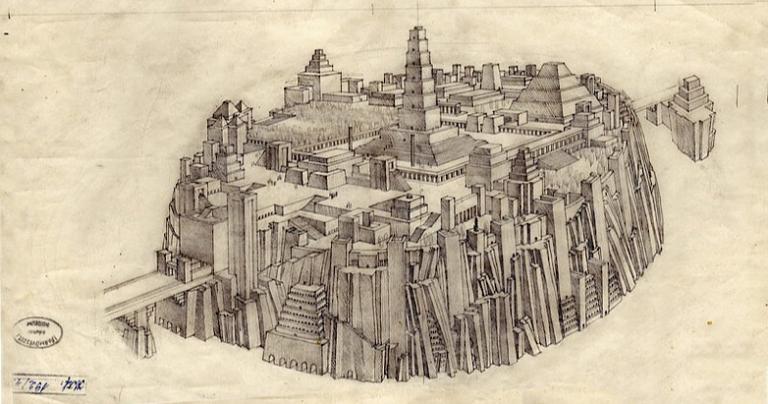 Tolkien began writing by being overwhelmed by the great sea wave that swept away Atlantis and so Lord of the Rings was born. So a scholar told me once, perhaps it is true. Certainly Numinor was much like Atlantis . . .
Tolkien began writing by being overwhelmed by the great sea wave that swept away Atlantis and so Lord of the Rings was born. So a scholar told me once, perhaps it is true. Certainly Numinor was much like Atlantis . . .
Atlantis ends with a great wave sweeping the might of man under the ocean.
People have approached me offering me maps to Atlantis when they heard my dissertation was on Timaeus. I looked, because maybe it was the start of a movie adventure, but sadly it is always (always, always, always) madness. Atlantis never existed, Plato says so as clearly as he can, but the story is so true in every sense, except the historical, that people keep looking.
I wrote a novel with a touch of Atlantis, because how could I not?
Plato created a likely story (myth) that helped us understand that “truth” is a complex idea. A story may have happened, that is a kind of truth, but if we tell it poorly, then the result of that telling may lie to us. When we hear that John Wilkes Booth is remembered, if the story is badly told, then we might think that doing evil is worthwhile. Instead of wanting to be Lincoln, we admire Booth.
God forbid.
To be fully true, the true story must also teach us to do what is good and beautiful or truth will be twisted to serve evil. There must be goodness in truth, because fundamentally truth is good. Fiction, think the parable of the prodigal son by Jesus, is true (as far as it goes) at a metaphysical level.
There was no prodigal, no father, but there is truth to the story.
History told morally is most powerful: Jesus was born, lived, died, and rose again. The world is changed by that myth that is true. The moral message is also powerful even in fiction. Plato gave us the fall of Atlantis, the great wave sweeping away the might Empire of men due to their pride, and that is true as far it goes.
Plato wrote a trilogy: Timaeus births Atlantis, Critias destroys her, and Hermocrates makes the story immortal.
How?
Timaeus introduces the plot that hooks to our memory of the Great Flood: proud men are destroyed by water when they reach too far. Critias retells the story, but ends, “unfinished” as the Great God prepares to destroy Atlantis. Just as Zeus begins to order destruction, the dialogue ends with his final command unsaid.
We stand at Armageddon and we. . . Wait.
Always.
That, just that, is the human condition if Plato is correct.
Plato leaves us looking for the end, but with no end that comes. This also is true. Our pride is washed away, but that pride continues and so Zeus is always preparing to announce our doom.
The Hermocrates which would end the trilogy was never written and this is just. Atlantis is always proud, always being destroyed, and never being resolved, because we are all Atlantans if Plato is right. The final word on Atlantis is unsaid, because we go on being Atlantans, or the victims of Atlantis, or looking for Atlantis.
We wonder if the great island will ever rise from the sea.
No.
Altantis is going, going . . . And when Christ returns will be gone. The Empire of human pride cannot stand on the Earth.












